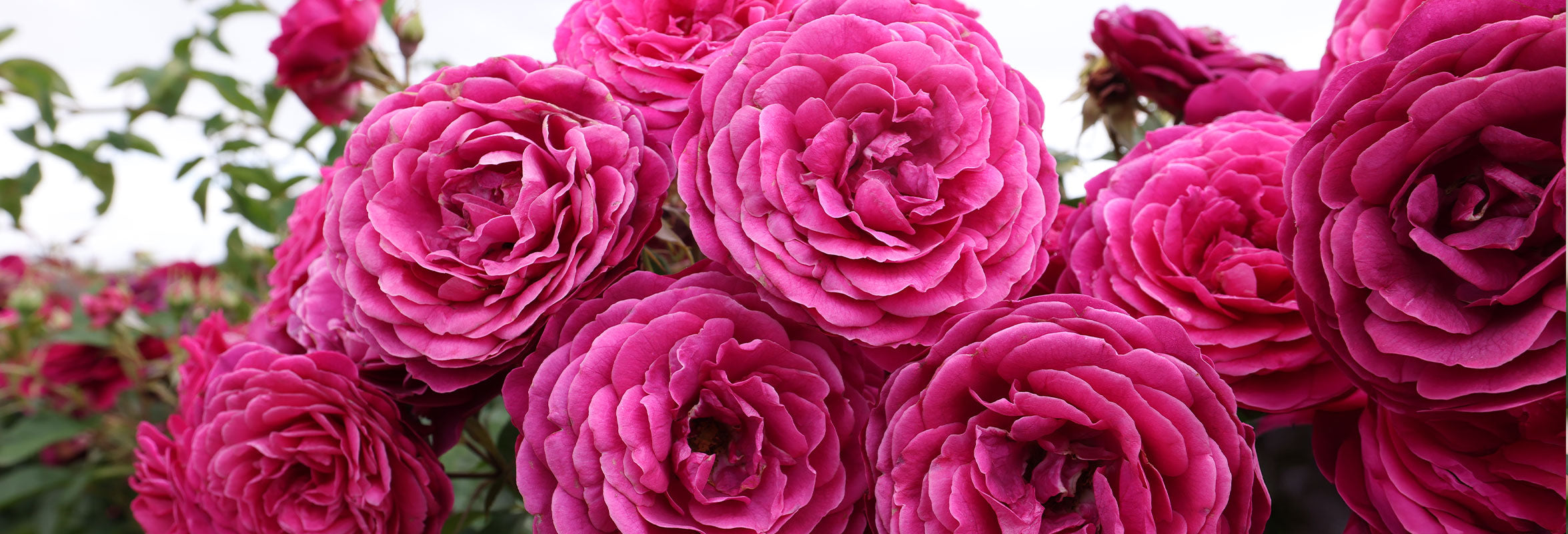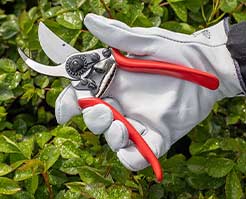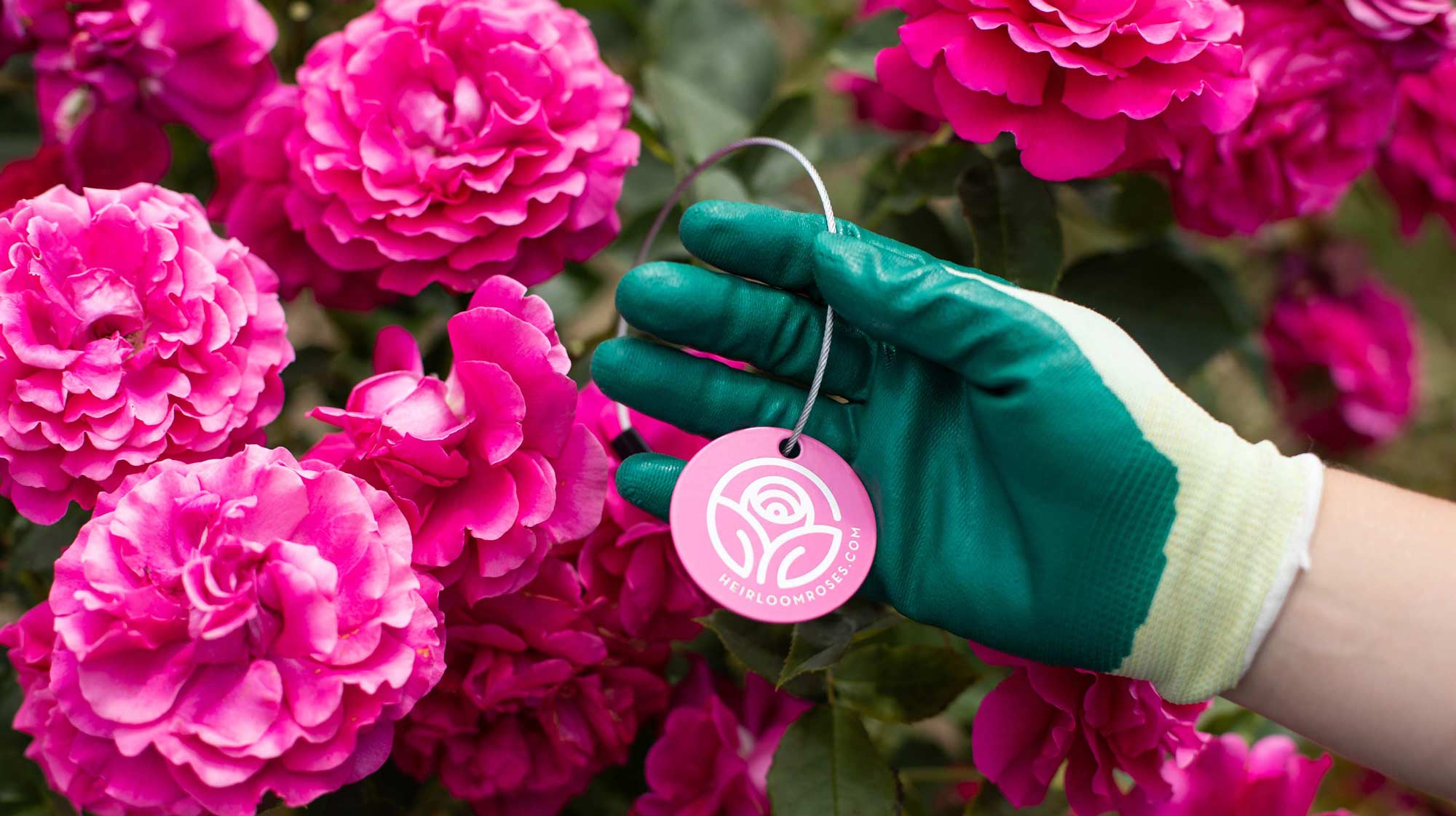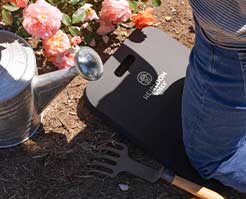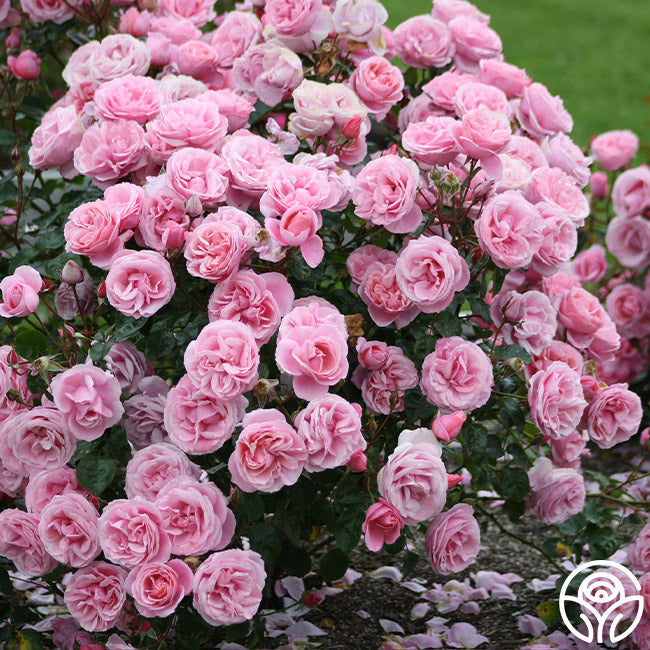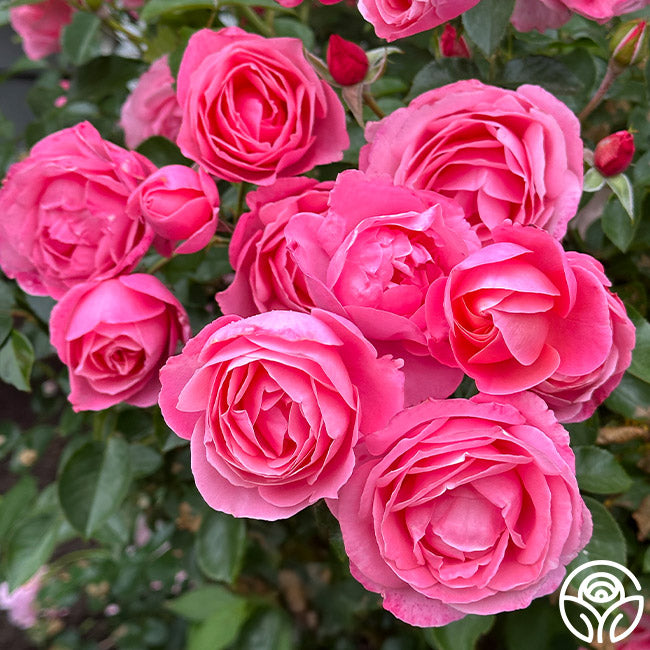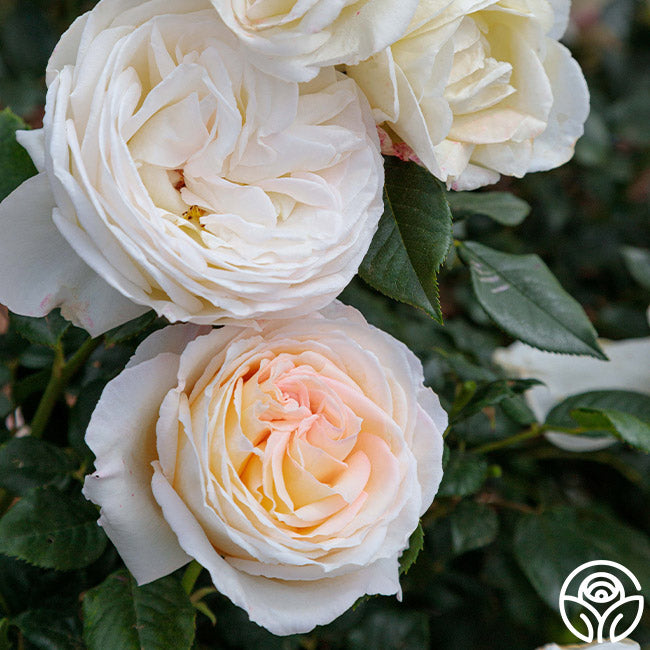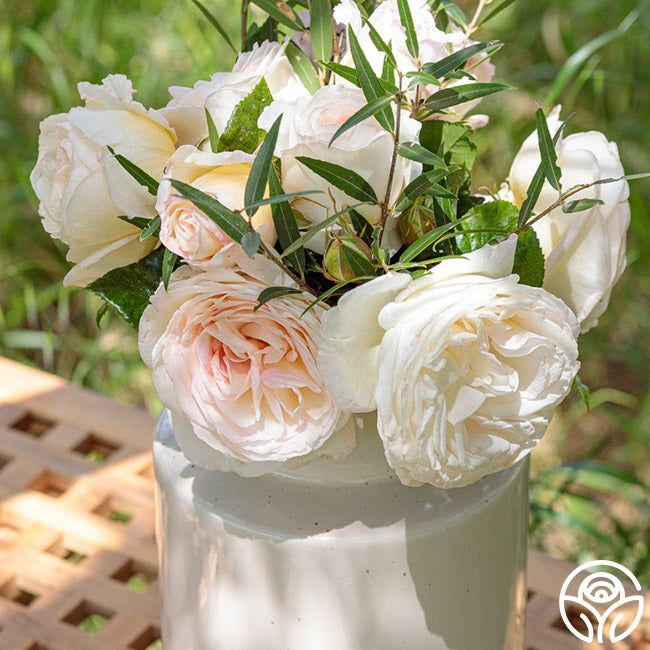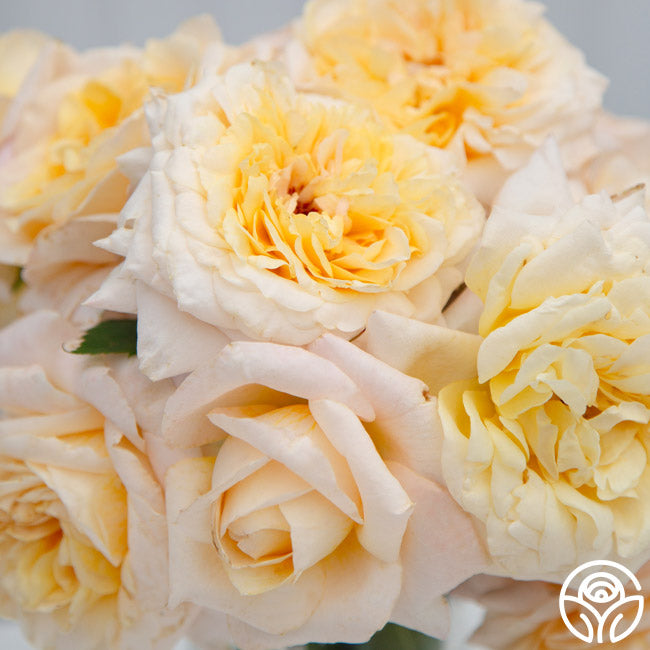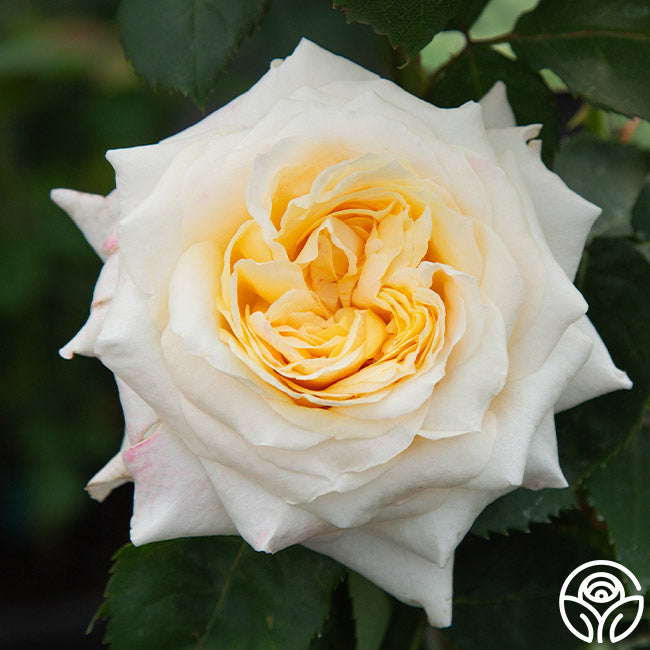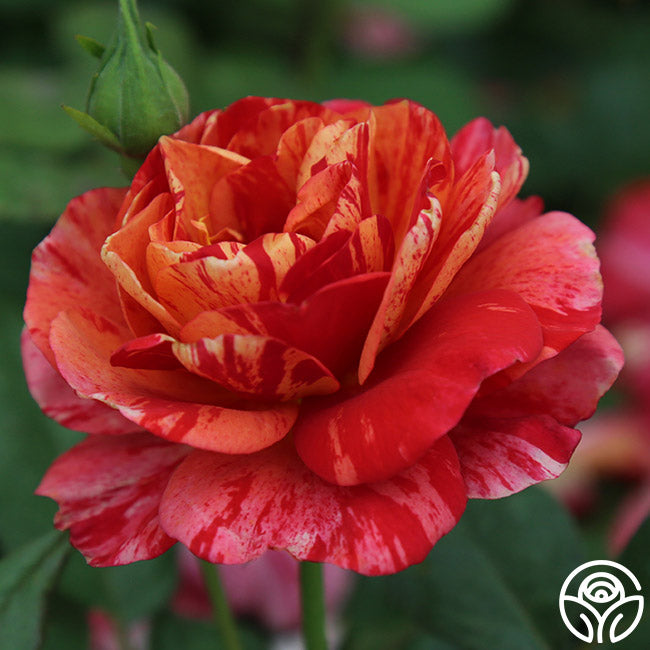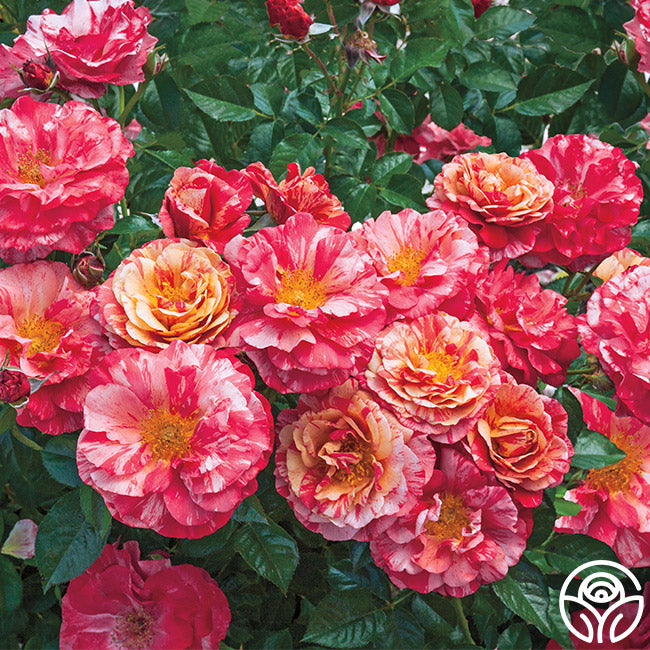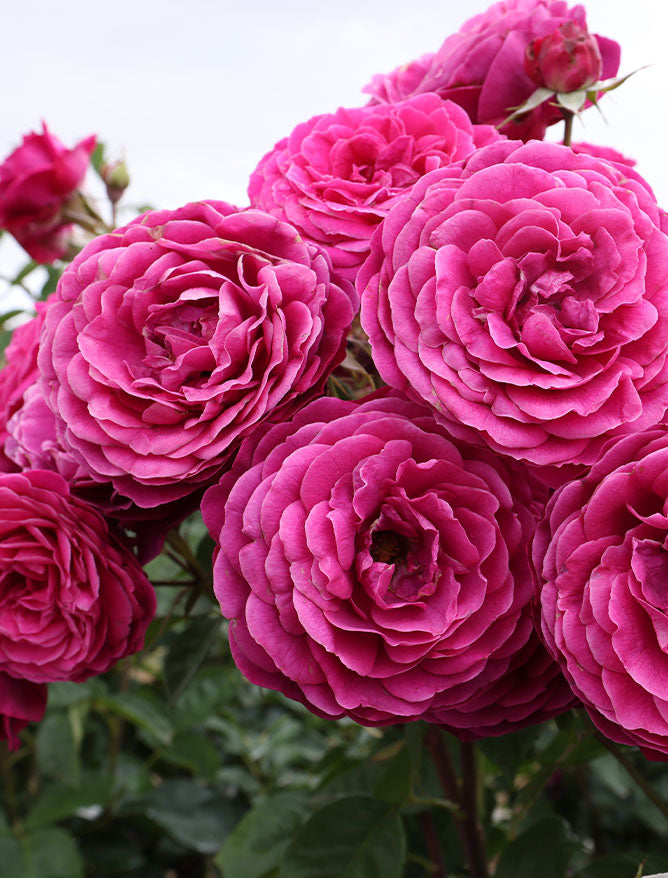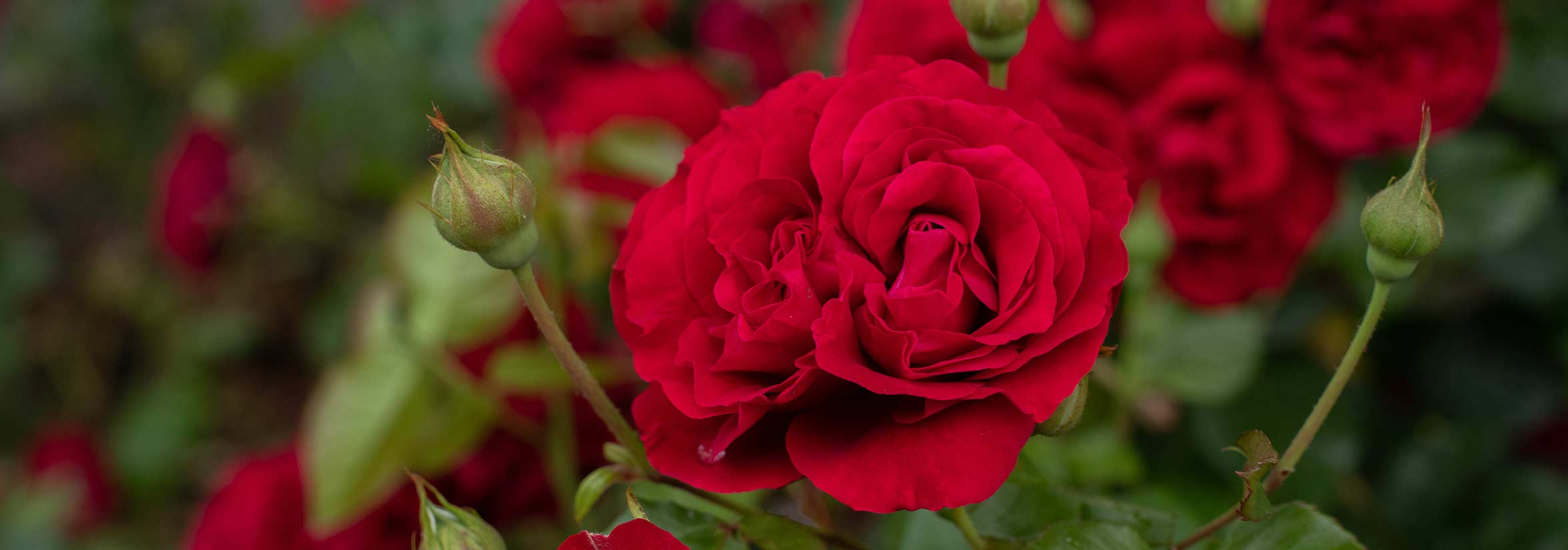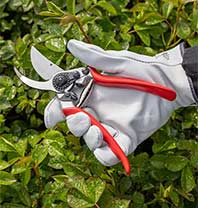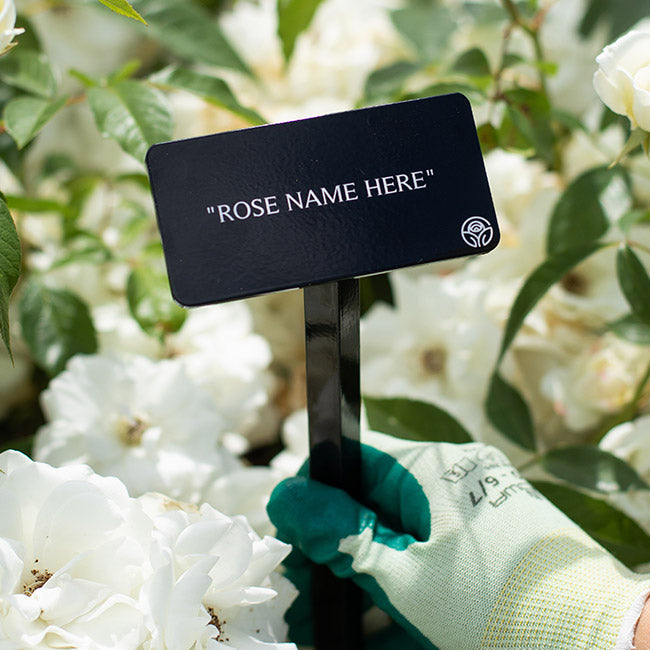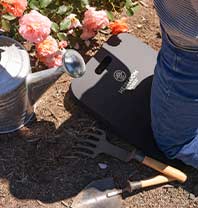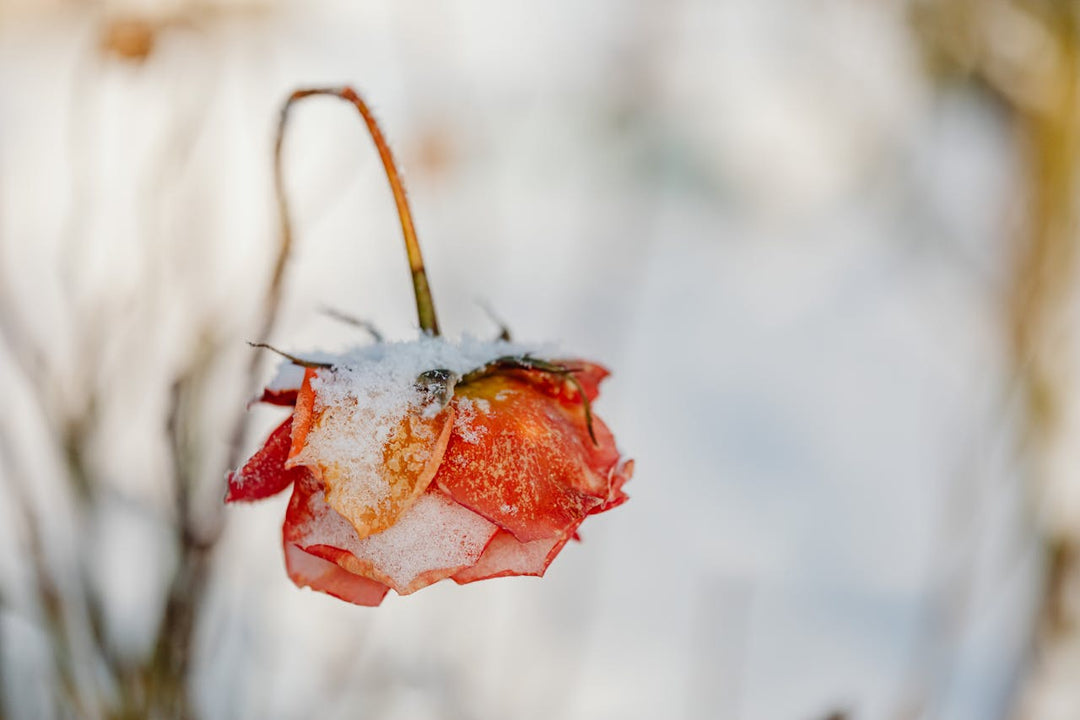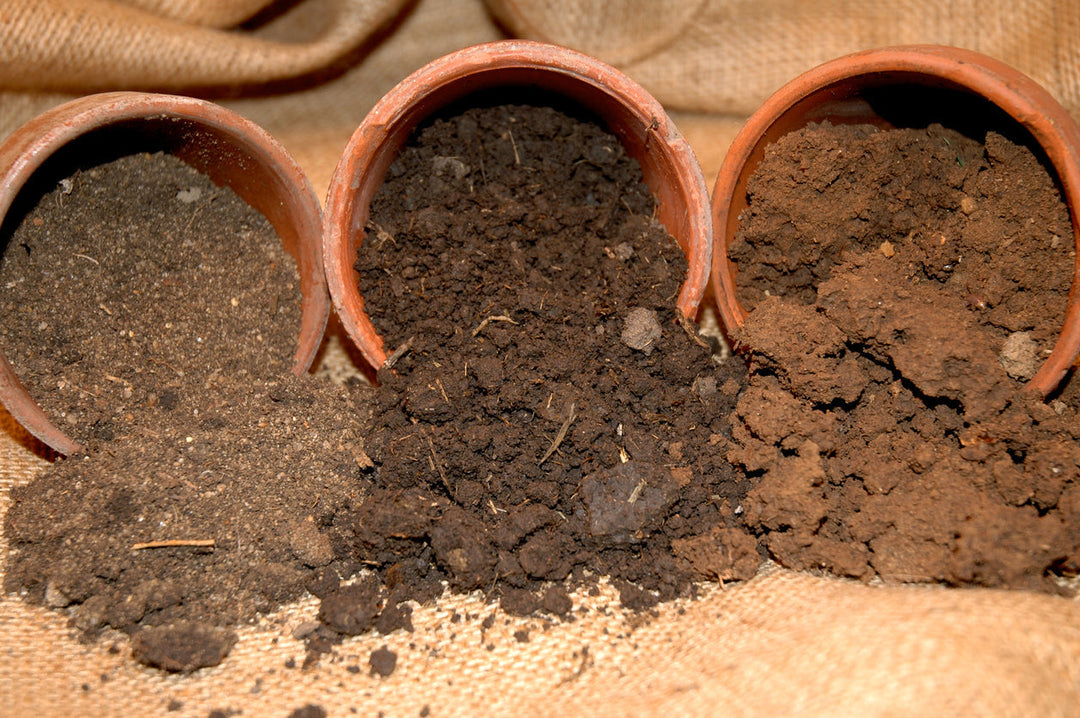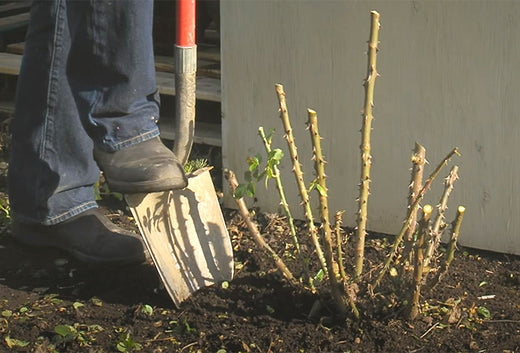Sustainable Gardening

Not all roses are fussy and high maintenance. Is it possible to “go green” with roses? If you choose an appropriate variety and practice preventative maintenance, the answer is a resounding YES! With a little extra planning and know-how, rose gardening can be an organic experience. So get ready to set aside your chemicals for a season and see just how successful you can be with alternative methods.
Choose the Right Rose
When deciding to garden roses organically, it is very important to choose the right rose. While long-stemmed hybrid teas found in grocery stores across the country are beautiful and often thought of as the “ideal rose”, they are the least cold-hardy and more susceptible to disease than many other rose varieties. There are over 200 native species worldwide, so it’s best to choose one suited for as little intervention as possible.
As always, we recommend only own-root roses which will have stronger roots, will be more hardy, and have fewer weak points for disease entry.
Rugosas are always a good choice for organic gardening as are several varieties designated by Texas A&M as “Earth Kind”. Please note that we have many of these roses, but not all. They are listed for reference only.
Our top recommendations include:
You may also want to try organic garden with these recommended varieties (listed for reference only):
Plant in the Correct Spot and Keep an Eye on It
For minimal upkeep, your rose should be planted in a sunny location with good drainage and air circulation. If you plant the same rose in the shade, next to a wood fence, or humid dryer vent, it will invite trouble for the plant.
Check your rose often for any signs of pests or disease. The sooner you catch insect or disease problems, the easier they are to deal with. Preventative measures are more environmentally friendly than a regimented spray program.
If you do see pests on your roses, use a strong jet spray of water to remove them from the plant. Be sure to spray the underside of leaves as well.
Enlist the help of environmental friends
Attract birds and beneficial insects like ladybugs or praying mantis to your yard to eat aphids and other harmful bugs. Companion plants like garlic, basil, mint, and marigolds also help repel insects. Increase the diversity of your yard with different kinds of plants to create a more balanced growing environment.

Organic Hints for Growing Roses
- DO select the right rose for your climate and plant in a sunny location
- DO grow roses on their own roots (the bud union on grafted roses can act as an entry point for diseases)
- DO monitor your roses for initial signs of disease and promptly remove infested parts before they have a chance to spread
- DO mulch with 2 to 3 inches of compost to add nutrients to the soil and suppress weeds
- DO use organic fertilizers such as fish emulsion or manures
- DO spray with jets of water to control aphids or mildew
- DO try alternative products like horticultural oil and insecticidal soap to control insects and diseases
- DO fall pruning and cleanup to prevent fungal diseases from overwintering on canes
- DON'T use broad-based or full spectrum insecticides, which kill good bugs as well as bad (thrips and spider mites often thrive after full- spectrum applications that kill their natural predators)
- DON'T spray with chemicals (unless as a last resort for truly devastating problems)
- DON'T spray Rugosa roses with anything (they will drop their leaves if sprayed)
- DON'T plant roses in poorly drained soil (invites root rot)
- DON'T keep problem roses around. Remove them and replant with disease-resistant varieties instead (you'll both be happier!)


